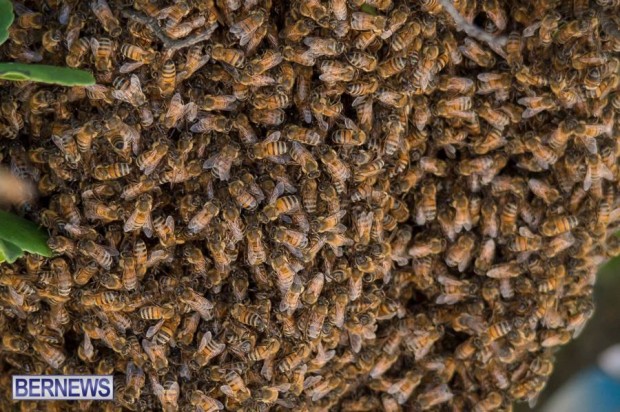2014 “Another Poor Year” For Honey Production
“2014 was another poor year for overall honey production,” Minister of Health, Seniors & Environment Jeanne Atherden said recently, adding that the two hurricanes in October 2014 “destroyed most of the nectar producing plants during a major nectar flow period.”
While delivering the brief for her Ministry in the House of Assembly, the Minister said, “2014 was another poor year for overall honey production. Production had an estimated value of just over $43,000 less than half of last year’s disappointing harvest.
“The two hurricanes in October 2014 destroyed most of the nectar producing plants during a major nectar flow period. The already fragile population of bees had few remaining trees and plants to forage on and had to survive on any honey gathered prior to the devastating storms.”
Read More About
Category: All, Environment



I encourage everyone who is interested in Bermuda Bee production to attend the BEST workshops leading up to Earth Hour on March 28 8:30pm-9:30pm. Here is the link to the BEST information below. For more information please call BEST on 292-3782 – http://best.org.bm/
A visit in March by Ross Conrad, of Dancing Bee Gardens, is now confirmed. Check out his website at http://www.dancingbeegardens.com. Many thanks to those who have offered to help with this exciting event. Additional support would be much appreciated and so, if you can help, please contact us at office@best.org.bm . Mr Conrad will have a full schedule with visits to beekeepers, assessment of the local environment, meetings with representatives of the Department of Environmental Protection and workshops at Horticultural Hall in the Botanical Gardens on Saturday March 28th. The topics and times of the workshops will be posted and will be of interest to both well-established and novice beekeepers as well as those simply interested in the health and welfare of Bermuda’s bees. Join us and BEE Curious!
With the Parks / and people in general spraying pesticides and weed killers around the Island as oppose to chopping out the weeds by their roots we will continue seeing a decrease in our honey bee population. Sad yes, but true